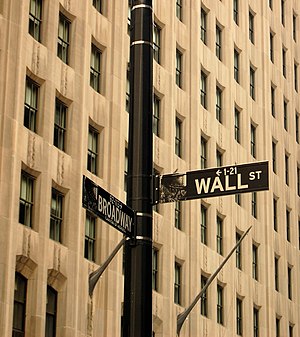Peter Lynch is the legendary stock picker of the Fidelity Magellan Fund, worked in Fidelity for over a decade, and worked his way from the bottom up. He took over the fund with 20 million in 1977. By the time he handed over the fund to his successor the fund is worth 13 BILLION. He averaged 29% per year growth during those years.
Yet according to "Efficient Market Hypothesis", someone like Peter Lynch cannot exist.
Efficient Market Hypothesis claims that the prices on the traded commodities already reflect all the information known, and as new information arise, price(s) of affected items will quickly reflect the new information by changing (up or down). Thus, it is NOT possible to consistently outperform the market by using information that the market already knows, except luck and cheating (insider info).
This sort of hypothesis is something the academia, I mean, the eggheads, dreamed up, because it uses impossible premises. It assumes that every trader knows EVERYTHING there is to know about what they are trading (buying or selling).
Show of hands: are you a fundamentals trader? How about momentum, technical, signal/pattern, and so on that do NOT need fundamentals? How about "no clue"?
Does any one here know EVERYTHING there is to know about what you're trading every day? Of course not.
The hypothesis is describing an investment "utopia" that doesn't exist. Thus, whatever it predicts about OUR stock market would be useless. The proof that Peter Lynch and other superb stockpickers exist should be enough to discredit the theory. Nobody stays lucky for over a decade!
So what can you learn from Peter Lynch? He suggest a strategy that came to be known as "Buy what you know", not just because it sounded good. The story he used often was that his wife came home back in the 70's with a pair of L'eggs pantyhose, sold in pharmacies in that new egg-shaped container with higher thread count and less vulnerable to damage. Ladies love them. Before then you had to go to department stores to buy pantyhose, and they get damaged easily, and comes in unappealing packaging. Lynch looked into the parent company, Hanes, liked what he saw, and bought, and the stocks went up. The fundamentals are sound, and their marketing folks did great in pushing the market ahead of everybody else.
In the book "On Up on Wall Street", he pretty much said that you don't need stock analyst to see this company just opened up six stores in your area, and so on. If you see a company, and it seems to be doing quite well, and you've shopped there and liked what you saw, check into its fundamentals and see if it's worth investing. It really is that simple.
Of course, it's been almost 20 years AFTER Peter Lynch left the Magellan fund, but the principles haven't really changed. Internet has brought more and more information to the masses, so we may be closer to this utopia that Efficient Market proponents want you to believe, but they are ignoring one fundamental fact: people don't WANT to know all the information. And there's no such thing as a "collective consciousness" in the market. People are driven by EMOTIONS.
Remember a while back, I said the stock market has split personalities? In the LONG-TERM (3 months to a year or longer) it acts logically. In the short term, it can act very chaotically as if it is acting emotionally.
I'll paraphrase Warren Buffet, and it's a baseball metaphor: "you don't get struck out waiting to buy something. You can wait and watch pitch after pitch goes by, and only swing at the one that really looks right to you. "
Or as Charles H. Brandes puts it, "there is no 24-second shot clock in investing". (24-second shot clock refers to professional basketball rule that you must take a shot at the other team's basket within 24 seconds)
In other words, you don't have to restrict yourself to buying a new stock every day, or every month, or whatever. You keep checking, and wait for the right one to come along. In other words, you need to profit from the gap created by the emotion-driven investors, and the "market correction" toward that "ideal price" the efficient market folks wrote about. By waiting for the right one, you've removed emotions from the equation (urgency is an emotion), leaving logic.
Or to put it yet another way, in the real world, emotions and mob mentality will drive a stock up or down beyond their "proper value", and that creates opportunity for stock pickers, such as Peter Lynch, and Warren Buffet, and many others. And by learning HOW they manage to profit, you can too.


![Reblog this post [with Zemanta]](http://img.zemanta.com/reblog_e.png?x-id=d8e75e2d-e5b5-4884-8547-fdcb9ebe0564)